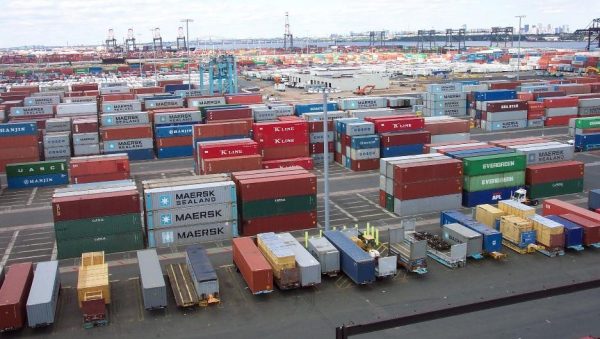FG To Lose N188bn On Food Import Waiver – Customs
The Federal Government may forfeit N188.37bn worth of revenue due to the duty waiver granted for staple foods importation in six months, the Nigeria Customs Service announced on Tuesday.
It also announced that the country spent N3.82tn on the importation of wheat, beans, rice, and maize between 2020 and 2023
The Comptroller-General of Customs, Adewale Adeniyi, stated this at a press briefing in Abuja while speaking on the theme, ‘Facilitating food trade through efficient Customs process: Best practices’.
In his speech, made available to our correspondent by the National Public Relations Officer of the service, Abdullahi Maiwada, the customs boss, said the forfeiture represents the government’s commitment to prioritising food security over short-term revenue goals.
On July 8, 2024, the Federal Government announced a 150-day duty-free import window for food commodities to ensure a reduction in food inflation in Nigeria. The food commodities include maize, husked brown rice, wheat, and cowpeas.
The government also collaborated with states to expand land cultivation across the country.
Consequently, the government suspended duties, tariffs, and taxes for the importation of certain food commodities through land and sea borders.
Giving updates on the directive, Adeniyi explained that the government’s initiatives, while crucial for addressing the nation’s food security challenges, have significant implications for the customs service.
According to him, as the agency responsible for trade facilitation and revenue collection at the borders, the NCS finds itself at the intersection of these policies and their practical implementation.
He pointed out that the most immediate and substantial implication is the revenue forfeiture, as the government has committed to making food more accessible and affordable for its citizens.
“The removal of tariffs and import duties on key staples, rice, wheat, maize, and sorghum (beans) for the next six months represents a considerable sacrifice in terms of potential revenue.
“Projecting based on recent trends, we estimate that the six-month tariff suspension could result in a revenue forfeiture of approximately N188.37bn,” Adeniyi said.
Analysing this, he explained that from 2020 to 2023, the total import of these food items, including beans, maize, rice, and wheat, was N3.82tn
“During this period, these commodities generated N192bn in customs duty and N562bn in levies paid to the government,” the CGC said.
The customs boss added that wheat alone accounted for N3.78tn in import value, generating N189bn as duty and N561bn as levy.
“Maize imports were valued at N34.3bn, contributing N2.3bn in duty. Rice, despite import restrictions, saw N195m in import value, yielding N19m in duty and N97m in levy. Beans imports were valued at N731m contributing N146m in duty,” Adeniyi stated.
He maintained that the figures highlighted the significant revenue implications of the new policy.
Meanwhile, Adeniyi stated that the Compressed Natural Gas initiative of the President, while not related to food, would reduce transportation costs by approximately 60 per cent.
“This could indirectly but significantly benefit food security by potentially lowering food transportation costs, making food more affordable across the country,” he said.
He quoted the National Bureau of Statistics as saying that Nigeria imported N920bn worth of food items in the first quarter of 2024, representing a surge of 95.28 per cent from N471bn recorded in the same quarter of 2023
Adeniyi said that despite government efforts to boost local food production, the rising food import bill underscores significant challenges in achieving food security and stabilising domestic prices.
Nevertheless, Adeniyi reiterated the NCS’s commitment to ensure full implementation of the government’s directive of import duty waiver.
He mentioned that the service must swiftly adapt its systems and procedures to implement the tariff suspensions efficiently.
“The removal of tariffs is likely to lead to a surge in food imports. We must prepare for this increased volume, ensuring that our ports and border stations can handle the influx without creating bottlenecks.
“With the removal of tariffs on specific items, there’s a risk of misclassification or misdeclaration of goods. We must enhance our inspection and verification processes to prevent abuse of this policy,” Adeniyi added.
He noted that the service has started noticing improvement in recent government policies like the drop in the prices of food items.
In another development, the customs boss on Tuesday handed over the affairs of the World Customs Organisation West and Central Africa sub-region to the new Vice Chairman of the organisation, Ahmadou Konate, after two years in office.
In his address at the handover ceremony in Abuja, Adeniyi said the years he spent was fulfilling and charged the incoming vice chair to bring in measures that will put customs administration together in the region.
He, however, noted that the customs administration is challenged with funding issues and advised Konate to make adequate funding a priority to enhance and increase revenue in the region.
Responding, Konate expressed appreciation to Adeniyi and pledged to continue with the momentum of his predecessors to achieve the goals of the World Customs Organisation.








